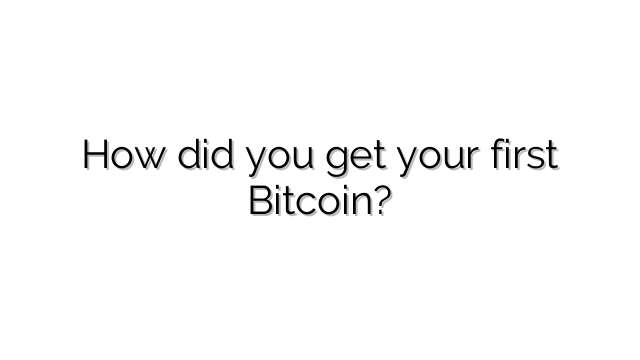Does Bitcoin Give You Peace of Mind?
Many Bitcoiners say that understanding sound digital money reduces their day-to-day anxiety about the future. Here’s why that happens for some people, why it doesn’t for others, and how our poll below helps map the sentiment.
Key Takeaways
- Bitcoin can lower financial anxiety for people who value fixed supply, self-custody and long-term planning.
- Volatility and self-responsibility can raise stress for newcomers without a plan.
- Your context matters: time horizon, risk tolerance, savings rate and security habits largely determine whether Bitcoin feels calming or chaotic.
Why Some Bitcoiners Report “Peace of Mind”
For many, peace of mind comes from substituting uncertainty about currency policy with rules that don’t change at the whim of leaders. Common reasons include:
- Fixed Supply & Predictable Issuance. Bitcoin’s 21 million cap and halving schedule reduce fear of monetary dilution.
- Self-Custody. Holding keys removes counterparty dependence—no bank holidays, no withdrawal limits, fewer single points of failure.
- Global Portability. Value moves 24/7 across borders, useful for travel, remote work, and unstable jurisdictions.
- Rules > Rulers. A credibly neutral protocol can feel fairer than systems shaped by politics or lobbying.
- Aligned Time Preference. Storing savings in a scarce asset nudges long-term thinking—often experienced as reduced financial noise.
When Bitcoin Increases Stress
Not everyone finds Bitcoin calming. Anxiety tends to rise when:
- Volatility meets short horizons. If you need the money soon, price swings can dominate headspace.
- Over-allocation. Putting too much into a single asset invites sleepless nights—no matter the thesis.
- Leverage & derivatives. Borrowing against a volatile asset amplifies both gains and worry.
- Weak security. Poor key management, untested backups, or phishing risk can feel like walking on a tightrope.
- News overexposure. Doom-scrolling markets and macro headlines can manufacture urgency that doesn’t exist.
Practical Steps to Reduce Bitcoin-Related Anxiety
- Write a simple plan. Define your time horizon, target allocation range, and rebalancing rules. Put it in one page and revisit quarterly.
- Right-size your position. If swings keep you up at night, reduce exposure until you can sleep.
- Prefer no-leverage. Avoid margin and short-term options until you’ve proven you can stick to your plan through volatility.
- Harden security gradually. Start with basic self-custody, then add hardware wallets, passphrases, multisig or decoy setups as your skill grows. Test your backups.
- Schedule your information diet. Check price and news at set times. Unfollow low-signal accounts. Read long-form, not just feeds.
- Automate & forget. If appropriate for your situation, consider a periodic buy or savings rule so decisions aren’t made in panic.
What Our Poll Below Can Reveal
Our poll “Does Bitcoin Give You Peace of Mind?” helps map how experience level, allocation and time horizon correlate with calmness. If a majority report less worry, that supports the idea that understanding the asset reduces noise. If not, it signals where education and risk framing need work.
Your vote matters. It guides what we publish next—security walkthroughs, volatility primers, or mindset pieces for long-term savers.
FAQ: Bitcoin & Peace of Mind
Can Bitcoin really reduce financial anxiety?
For some, yes—mainly through predictable monetary rules and self-custody. For others, volatility and responsibility can increase stress. Fit the tool to the person.
How much Bitcoin should I hold to feel “calm”?
There’s no universal number. Many people report better sleep when their allocation matches their risk tolerance and emergency-fund needs.
Is self-custody required?
No, but custody risk can be a source of anxiety. If you self-custody, invest time in learning best practices and testing backups.
What about price crashes?
Crashes are part of a volatile, global asset. A written plan, no leverage, and a long horizon are the best shock absorbers.





